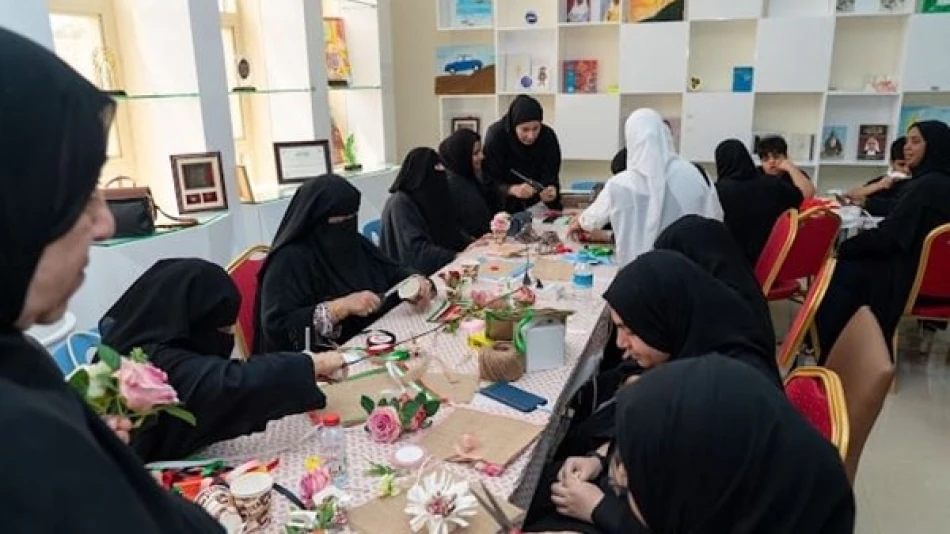
Ajman Community Initiatives Foster Collaboration and Generosity
Ajman Transforms Community Engagement with Ambitious Summer Programs and Infrastructure Push
The UAE emirate of Ajman is launching an extensive array of community programs designed to strengthen social cohesion and youth development, marking a significant investment in human capital during the country's designated "Year of Community." The month-long "Our Summer is Happiness" initiative, alongside new cycling infrastructure and expanded community councils, signals Ajman's strategic push to enhance quality of life and compete with neighboring emirates for talent retention.
Strategic Youth Investment Through Diversified Programming
Under the patronage of Sheikh Ammar bin Humaid Al Nuaimi, Crown Prince of Ajman, the government's summer program runs from July 14 to August 14, operating across eight specialized centers. This comprehensive approach targets different demographics through dedicated facilities: separate centers for boys and girls, a scientific specialization center, cultural programs hub, and notably, dedicated centers for people of determination (disabilities) and senior citizens.
The program's structure reflects a sophisticated understanding of community needs, moving beyond generic youth activities to address specific skill development and cultural preservation. Ahmed Al Raisi, chairman of the organizing committee, emphasized the initiative's dual focus on traditional values preservation and innovation-driven talent discovery.
Addressing Regional Competition for Human Capital
This investment comes as UAE emirates increasingly compete to attract and retain young talent. While Dubai and Abu Dhabi dominate headlines with mega-projects, Ajman's focus on grassroots community building and family-oriented programming represents a different strategic approach. The emirate appears to be positioning itself as a family-friendly alternative within the UAE's competitive landscape.
Community Council Expansion Signals Institutional Commitment
Perhaps more significant than the summer programs is Ajman's expansion of community councils from 15 to 23, extending coverage to Masfout, Mazyad, and Manama areas. These councils, managed by the Citizens Affairs Office, serve thousands of participants and represent a substantial institutional investment in community engagement infrastructure.
The councils offer specialized programming including financial planning workshops, positive parenting courses, and environmental awareness campaigns. This systematic approach to community development mirrors successful models in Singapore and other developed nations, where government-supported community centers serve as social cohesion anchors.
Volunteer Culture as Economic Strategy
The emphasis on volunteer culture development among youth serves dual purposes: social cohesion and economic efficiency. By building a volunteer base, Ajman creates sustainable community programming while reducing long-term operational costs. This model has proven effective in countries like South Korea and Japan, where volunteer networks support extensive social services.
Infrastructure Investment Complements Social Programming
The AED 16 million cycling path and agriculture project on Sheikh Mohammed bin Rashid Street represents more than recreational infrastructure. This investment aligns with global trends toward sustainable urban development and active lifestyle promotion, similar to initiatives in Copenhagen and Amsterdam.
The project's integration of green spaces, cycling infrastructure, and community facilities creates a comprehensive lifestyle ecosystem designed to improve public health metrics while enhancing the emirate's attractiveness to families and young professionals.
Market Implications and Regional Context
Ajman's community-focused strategy reflects broader economic realities facing smaller UAE emirates. Unable to compete directly with Dubai's business hub status or Abu Dhabi's oil wealth, Ajman is differentiating through quality of life improvements and community cohesion.
This approach could prove particularly valuable as remote work trends continue post-pandemic, allowing professionals to prioritize lifestyle factors over proximity to traditional business centers. The emirate's investment in family-oriented infrastructure positions it to capture this demographic shift.
The success of these initiatives will likely influence similar programs across the Gulf region, as governments increasingly recognize community engagement as essential infrastructure for economic diversification and social stability in the post-oil transition period.
Most Viewed News

 Layla Al Mansoori
Layla Al Mansoori






